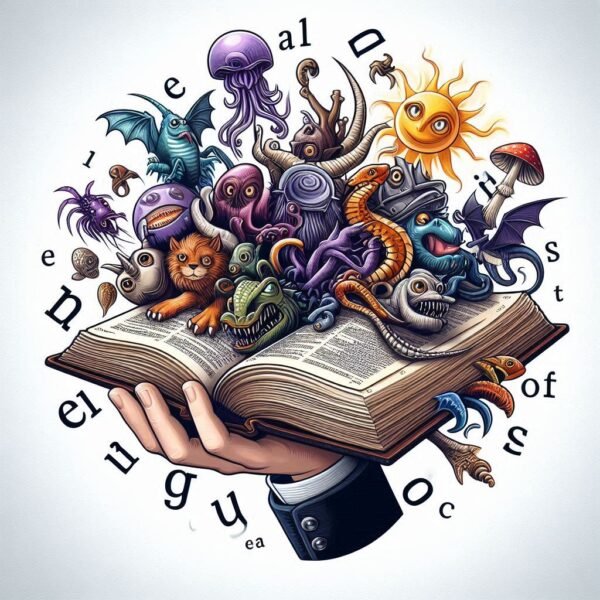New words added to the dictionary 2025 Oxford English Dictionary (OED)

The Oxford English Dictionary (OED) has added several new words and phrases in its March 2025 update, reflecting the evolving nature of the English language. This update includes contributions from various global varieties of English, particularly from Ireland, Southeast Asia, South Africa, and the Philippines. Below are some highlights of the new words added in 2025, based on the latest available information:
Irish English Additions
Spice bag: A popular Irish takeaway dish typically consisting of fried chicken, chips, peppers, onions, and spices, often served with curry sauce. It’s said to have originated around 2006 in a Dublin Chinese takeaway called Sunflower.
Class: Used as a general term of approval meaning “excellent” or “great,” a usage traced back to 1981 and popularized in media like the TV show Derry Girls.
Blaa: A soft, white bread roll dusted with flour, strongly associated with Waterford, Ireland. Its origins may link to French words like “blanc” (white) or “blé” (wheat), though this is uncertain.
Ludraman: A lazy, unproductive, or foolish person (especially a man), borrowed from the Irish “liúdramán” or “lúdramán.” It appeared in James Joyce’s Ulysses with varied spellings.
Morto: A shorthand for “mortified,” meaning extremely embarrassed, with evidence dating back to 1991.
Mineral: A term for a carbonated soft drink, a usage still current in Irish English and West African English, dating to 1893.
Debs: Short for “debs’ ball,” a formal event for final-year secondary school students, an important rite of passage in Ireland, recorded since 1980.
Act the maggot: A phrase meaning to behave foolishly, with usage traced to 1946.
Southeast Asian English Additions
Gigil (Philippine English): A Tagalog word for the overwhelming urge to squeeze or pinch something adorable, like a baby or a kitten. It’s used as both a noun and an adjective, with evidence in English from 1990.
Salakot (Philippine English): A traditional Filipino hat, typically domed or conical with a wide brim, used by farmers and as a cultural symbol, first noted in English in 1841.
Kababayan (Philippine English): A small, sweet, muffin-like cake common in Filipino bakeries, recorded since 2002.
Mat rempit (Malaysian English): A young man who participates in illegal motorcycle street racing and performs dangerous stunts, noted since 2004.
Terror (Singaporean and Malaysian English): An adjective that can mean “terrible” or “awful” (since 1977) or, conversely, “admirable” or “excellent” (since 1997), often used with “wah” and “lah” (e.g., “Wah! So terror lah”).
Alamak (Singaporean and Malaysian English): An exclamation of surprise, shock, or dismay, borrowed from Malay.
South African English Additions
Yoh: An interjection expressing surprise or emphasis, likely derived from Afrikaans “jo” and Xhosa “yho” or “yo,” with usage dating to 1855.
Makarapa: A decorated hard hat worn by sports fans, particularly at soccer matches, a distinctly South African term.
Sharp-sharp: An expression meaning “quickly” or “perfectly,” reflecting efficiency or agreement.
Gatvol: A term meaning “fed up” or “irritated,” borrowed from Afrikaans.
The March 2025 update focuses on “loan words” — terms from other languages that have been adopted into English with enough frequency to become part of specific regional vocabularies. These additions showcase how English continues to absorb and adapt words from diverse cultures, especially through communities where English is spoken alongside other languages.
For a comprehensive list and detailed definitions, you can refer to the official OED website, as the dictionary updates its entries quarterly. This update reflects the OED’s ongoing effort to document the global richness of English as it evolves in 2025.
The Oxford English Dictionary (OED) has recently updated its entries, adding a variety of new words from different languages and cultures. This update reflects the evolving nature of English and acknowledges the integration of terms that fill lexical gaps in the language. Here are some notable additions from the March 2025 update:
New Words from Irish English
blaa (n.): A type of soft bread roll.
class (adj.): Used as a term of approval, originating in Ireland.
debs (n.): Referring to debutantes.
ludraman (n.): A term for someone who engages in playful or foolish behavior.
morto (adj.): Describing something that is dead or lifeless.
spice bag (n.): A popular Irish takeaway dish consisting of fried chicken and chips with spices.
to act the maggot (phrase): To behave foolishly or playfully.
New Words from Southeast Asia
alamak (int.): An exclamation expressing shock or dismay, commonly used in Malaysia and Singapore.
fish head curry (n.): A dish featuring fish heads cooked in a spicy curry sauce.
nasi lemak (n.): A fragrant rice dish cooked in coconut milk, often served with various accompaniments.
tapau (v.): To take away food, derived from Mandarin and Cantonese.
New Words from Philippine English
gigil (n. and adj.): A term describing the overwhelming urge to squeeze something cute, reflecting a feeling often referred to as “cute aggression.”
lumpia (n.): A type of spring roll popular in Filipino cuisine.
videoke (n.): A local variation of karaoke that includes scoring.
New Words from South African English
gatvol (adj.): Describes being fed up or tired of something.
yoh! (int.): An expressive exclamation used to convey surprise or admiration.
This update marks a significant step for the OED as it embraces linguistic diversity and acknowledges the importance of words that do not have direct English equivalents. The inclusion of these terms not only enriches the dictionary but also reflects the global nature of modern English usage.
The Oxford English Dictionary (OED) continually updates its content to reflect the evolving nature of the English language. In its March 2025 update, the OED introduced several new words and phrases from diverse linguistic and cultural backgrounds:
Irish English Additions:
Blaa: A soft bread roll originating from Waterford, Ireland.
Class: Used as an adjective to describe something excellent or first-rate; popularized by the TV show “Derry Girls.”
Debs: Short for ‘debutante ball,’ referring to formal social events for students, similar to proms.
Ludraman: Derived from the Irish “liúdramán,” meaning a lazy or unproductive person; first recorded in James Joyce’s “Ulysses.”
Mineral: In Irish English, this term refers to a soft drink.
Morto: An adjective describing someone who is extremely embarrassed.
Spice bag: A popular takeaway meal consisting of spicy fried chicken pieces, chips, and vegetables, typically seasoned with a blend of spices; originated in Dublin around 2006.
Malaysian and Singapore English Additions:
Alamak: An exclamation expressing surprise, shock, dismay, or outrage; commonly used in Malaysia and Singapore.
Fish head curry: A dish combining elements of Chinese and South Indian cuisines, featuring a curry made with a fish head.
Kaya: A sweet spread made from coconut milk, eggs, sugar, and pandan leaves.
Kaya toast: Toasted bread spread with kaya, often served as a popular breakfast item.
Ketupat: A type of rice cake boiled in a pouch of woven palm leaves, commonly found in Malaysia and Indonesia.
Nasi lemak: A Malay dish consisting of rice cooked in coconut milk and flavored with pandan leaf, often accompanied by various side dishes.
Otak-otak: A Southeast Asian dish made from ground fish mixed with spices and coconut milk, wrapped in banana leaves, and grilled or steamed.
Steamboat: A communal meal where diners cook raw ingredients in a pot of simmering broth at the table; also known as hotpot.
Tapau: Derived from Chinese languages, meaning to package or wrap up food to take away; equivalent to ‘takeout’ or ‘to-go.’
Philippine English Additions:
Gigil: A Tagalog term describing the intense urge to pinch or squeeze something extremely cute; often referred to as ‘cute aggression.’
Lumpia: A type of spring roll commonly found in Filipino cuisine, typically filled with minced meat, seafood, or vegetables.
Salakot: A traditional wide-brimmed hat made from woven materials, commonly worn by farmers in the Philippines.
Videoke: A Filipino version of karaoke that includes scoring, combining ‘video’ and ‘karaoke.
South African English Additions:
Gatvol: An adjective expressing a state of being fed up or frustrated.
Makarapa: A decorative miner’s helmet worn by South African football fans, often customized with team colors and slogans.
Sharp-sharp: A casual greeting or farewell, similar to ‘hello’ or ‘goodbye.’
Yoh: An exclamation used to express various emotions, such as surprise, wonder, or admiration.
US Hispanic English Additions:
Barbacoa: A method of cooking meat (such as beef or lamb) that has been slowly cooked with seasonings, typically served shredded as a filling in tacos or burritos.
Birria: A traditional Mexican dish consisting of goat, beef, lamb, or other meat marinated in a mixture of vinegar, chili, and other seasonings, slow-cooked in a spiced broth, served as a soup or stew or as a taco filling.
Cotija: A white, salty, semi-hard Mexican cheese made from cow’s milk.
Frijoles refritos: Beans (traditionally pinto beans) cooked by boiling and then mashed and fried to make a thick paste; also known as refried beans.
Torta: A sandwich consisting of a bread roll split lengthwise and filled with a variety of ingredients, typically including grilled meat, avocado, refried beans, chili peppers, tomatoes, and onions.
These additions reflect the OED’s commitment to capturing the richness and diversity of the English language as it evolves across different cultures and communities.
